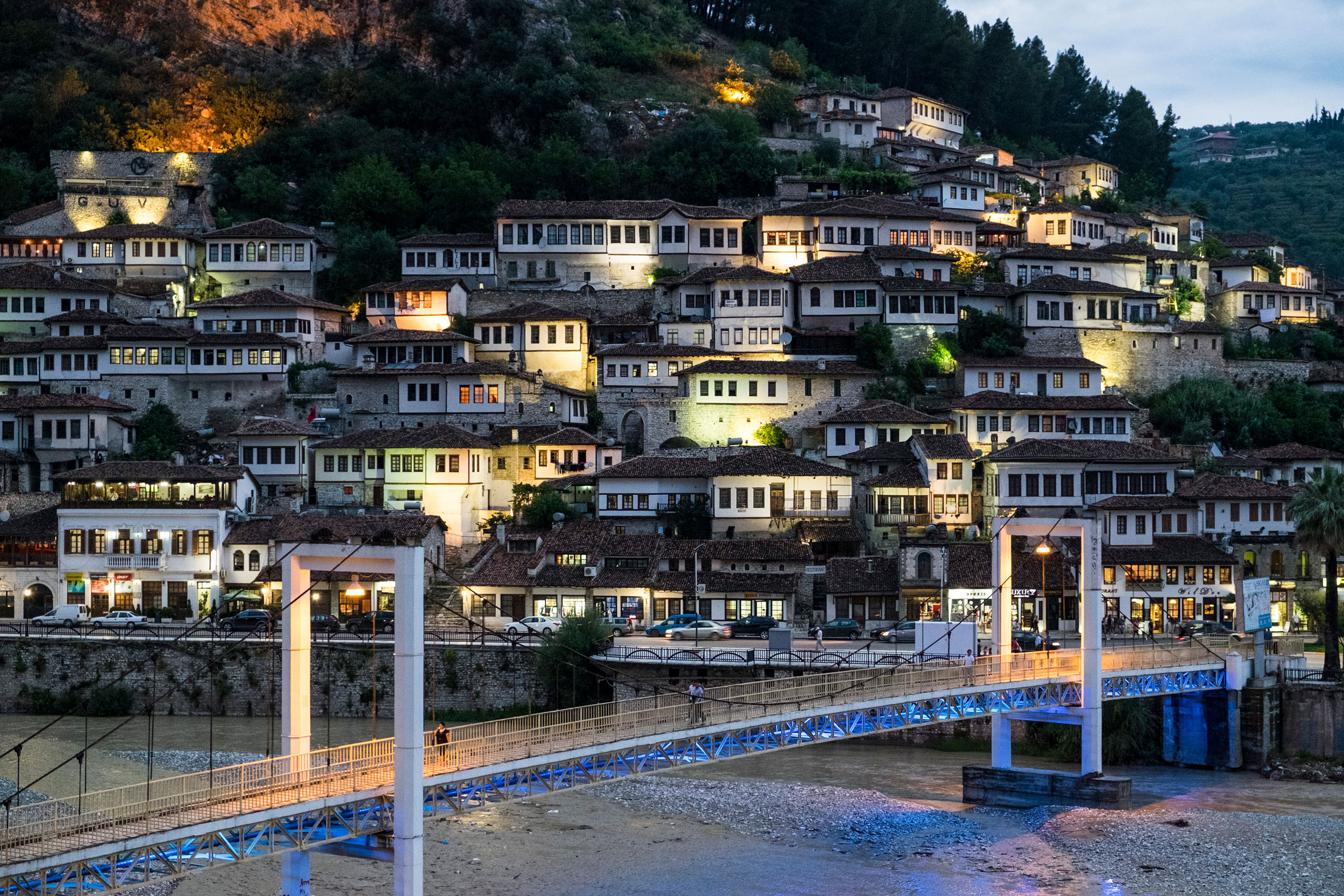
Old stone houses line the banks of the Osumi River in Berat, enveloping visitors in the historical beauty of the town. This year marks the 80th anniversary of German forces arriving in Albania during World War II, and of the people of Berat protecting many of the country’s Jews who sought refuge—illustrating the principle of the Albanian code of Besa which states the home is first and foremost for guests and God.
To better understand the story of Berat’s 400 years of Jewish history, including how Albania became the only country in Europe whose Jewish population increased during WW II, a visit to The Solomoni Museum is in order. An ethnographic museum in a traditional house across the street provides more Albanian context, along with Berat’s 13th century Byzantine churches, 16th century mosques, and a millennium-old castle overlooking the uniquely picturesque city.
Berat continues the tradition of exceptional hospitality in its restaurants and hotels. Across the Gorica Bridge, impeccable modern rooms in the Amalia Boutique Hotel belie the ancient stone exterior, and a selection of raki invites guests to taste Albanian styles of the fruit brandy popular around the Balkans. The raki also flows freely at Lili Home-Made Food, more a backyard in the Mangalem Quarter than restaurant, as the eponymous host entertains guests with theatrical menu explanations and his wife Mirella cooks in the kitchen of their family home. Thirty minutes into the mountains outside town, Restaurant Roshniku serves abundant traditional roasted suckling goat feasts featuring local products, including from the family’s adjacent winery and hotel, Kantina Alpeta.
More Must-Reads from TIME
- Why Trump’s Message Worked on Latino Men
- What Trump’s Win Could Mean for Housing
- The 100 Must-Read Books of 2024
- Sleep Doctors Share the 1 Tip That’s Changed Their Lives
- Column: Let’s Bring Back Romance
- What It’s Like to Have Long COVID As a Kid
- FX’s Say Nothing Is the Must-Watch Political Thriller of 2024
- Merle Bombardieri Is Helping People Make the Baby Decision
Contact us at letters@time.com